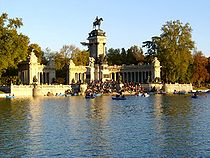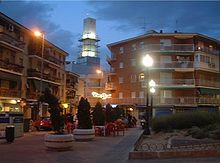Plenary Speakers
The Second International Conference on Science in Society will feature plenary sessions by some of the world’s leading thinkers and innovators in the field, as well as numerous parallel presentations, by researchers and practitioners.
| Fernando Broncano | Javier Moscoso |
| Jimena Canales | Javier Ordóñez |
| Javier Echeverria | Matthew Stanley |
| Carlos Elias | Jesús Zamora-Bonilla |
| Karim Gherab-Martin |
Garden Conversation Sessions
Plenary Speakers will make formal 30-minute presentations. They will also participate in 60-minute Garden Conversations – unstructured sessions that allow delegates a chance to meet the speakers and talk with them informally about the issues arising from their presentation.
Please return to this page for regular updates.
Local Organizer
- Dr. Carlos Elias
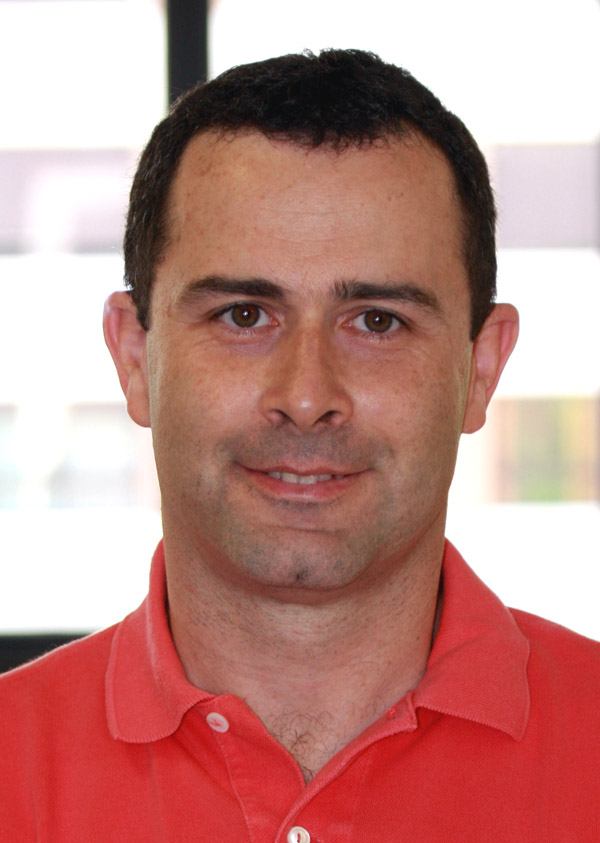 Carlos Elias is Full Professor in Scientific Journalism at Carlos III University of Madrid, and he was a Visiting Fellow at the London School of Economics (2005/2006). Educated in Inorganic Chemistry (MSc) and Journalism (MA, PhD) at the University of La Laguna, he was a chemistry researcher before working as a political journalist for EFE News Agency (the leading Spanish language news agency and the fourth largest news agency in the world) and as a scientific correspondent for El Mundo (one of the Spanish leading newspaper). His current research focuses on the relationship between policy-making, science and mass media culture. He has published several scientific articles and three books in this field as well as one of the first university handbooks in science communication written in Spanish (Fundamentos de periodismo científico y divulgación mediática, Alianza Editorial, 2008). Nowadays, he is very interested in the decline of natural sciences in Western countries in the present mass media culture, field in which he has published his latest book, La razón estrangulada [The Strangled Reason: The Crisis of Science in the Contemporary Society, Debate/Random House-Mondadori, 2008). For this controversial essay, about why Western youth are not interested in Science and Technology, he was shortlisted for the Spanish National Essay Prize 2009.
Carlos Elias is Full Professor in Scientific Journalism at Carlos III University of Madrid, and he was a Visiting Fellow at the London School of Economics (2005/2006). Educated in Inorganic Chemistry (MSc) and Journalism (MA, PhD) at the University of La Laguna, he was a chemistry researcher before working as a political journalist for EFE News Agency (the leading Spanish language news agency and the fourth largest news agency in the world) and as a scientific correspondent for El Mundo (one of the Spanish leading newspaper). His current research focuses on the relationship between policy-making, science and mass media culture. He has published several scientific articles and three books in this field as well as one of the first university handbooks in science communication written in Spanish (Fundamentos de periodismo científico y divulgación mediática, Alianza Editorial, 2008). Nowadays, he is very interested in the decline of natural sciences in Western countries in the present mass media culture, field in which he has published his latest book, La razón estrangulada [The Strangled Reason: The Crisis of Science in the Contemporary Society, Debate/Random House-Mondadori, 2008). For this controversial essay, about why Western youth are not interested in Science and Technology, he was shortlisted for the Spanish National Essay Prize 2009.
- Dr. Karim Gherab-Martin
 Dr. Karim Gherab-Martin is a physicist and philosopher of science and technology. For the 2008 and 2009 academic years, he was in Cambridge, USA, as a visiting scholar in the Department of Philosophy at Harvard University, and he has been appointed as a visiting scholar in the University of Illinois at Urbana-Champaign for the academic year 2010-2011. His previous experience includes teaching History of Science at the Universidad Autonoma de Madrid.
Dr. Karim Gherab-Martin is a physicist and philosopher of science and technology. For the 2008 and 2009 academic years, he was in Cambridge, USA, as a visiting scholar in the Department of Philosophy at Harvard University, and he has been appointed as a visiting scholar in the University of Illinois at Urbana-Champaign for the academic year 2010-2011. His previous experience includes teaching History of Science at the Universidad Autonoma de Madrid.
His research interests focus on the History and Philosophy of Physics, as well as on Science and Technology Studies. Among other writings, he co-authored a book now being published in English entitled ‘The New Temple of Knowledge: Towards a Universal Digital Library’. He also edited a monograph in the periodical Arbor entitled ‘Science and Culture on the Web’.
Plenary Speakers
- Dr. Fernando Broncano
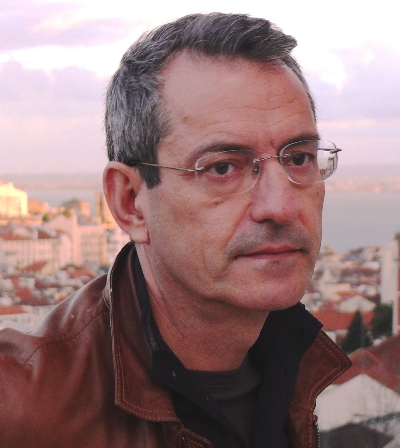 Fernando Broncano is a Tenured Professor in Philosophy of Science and Technology at the Universidad Carlos III de Madrid (UC3M <http://www.uc3m.es/portal/page/portal/home>). His current work is focused on rationality and human identity, on the Philosophy of Technology, as well as promoting overcoming the division between scientific, technologic and humanistic cultures. He also is participating in the Science and Culture Programme launched by the Universidad Autónoma de Madrid (UAM <http://www.uam.es/ss/Satellite/en/home>). He has been visiting scholar at Brown University (Providence, RI) for several years.
Fernando Broncano is a Tenured Professor in Philosophy of Science and Technology at the Universidad Carlos III de Madrid (UC3M <http://www.uc3m.es/portal/page/portal/home>). His current work is focused on rationality and human identity, on the Philosophy of Technology, as well as promoting overcoming the division between scientific, technologic and humanistic cultures. He also is participating in the Science and Culture Programme launched by the Universidad Autónoma de Madrid (UAM <http://www.uam.es/ss/Satellite/en/home>). He has been visiting scholar at Brown University (Providence, RI) for several years.
- Dr. Jimena Canales
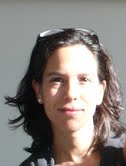 Jimena Canales is an Associate Professor in the Department of History of Science, at Harvard University. She is the author of A Tenth of a Second: A History (Chicago University Press, 2010). She specialized in the history of science, architecture, media, and philosophy. Some of her works are the following: “El Duelo del Tiempo,” ABCD: Las Artes y las Letras, 16 Enero 2010, No. 932, p.18-19; “Pieles Criminales,” ABCD: Las Artes y las Letras (13 Septiembre 2008), pp. 6-7; “Movement before Cinematography: The High-Speed Qualities of Sentiment,” Journal of Visual Culture 5 (2006): 275-294; “Einstein, Bergson, and the Experiment that Failed: Intellectual Cooperation at the League of Nations,” Modern Language Notes, 120 (2005); y “Photogenic Venus: The ‘Cinematographic Turn’ in Science and its Alternatives,” Isis 93 (2002): 585-613.
Jimena Canales is an Associate Professor in the Department of History of Science, at Harvard University. She is the author of A Tenth of a Second: A History (Chicago University Press, 2010). She specialized in the history of science, architecture, media, and philosophy. Some of her works are the following: “El Duelo del Tiempo,” ABCD: Las Artes y las Letras, 16 Enero 2010, No. 932, p.18-19; “Pieles Criminales,” ABCD: Las Artes y las Letras (13 Septiembre 2008), pp. 6-7; “Movement before Cinematography: The High-Speed Qualities of Sentiment,” Journal of Visual Culture 5 (2006): 275-294; “Einstein, Bergson, and the Experiment that Failed: Intellectual Cooperation at the League of Nations,” Modern Language Notes, 120 (2005); y “Photogenic Venus: The ‘Cinematographic Turn’ in Science and its Alternatives,” Isis 93 (2002): 585-613.
- Dr. Javier Echeverria
 Javier Echeverria, graduated in Philosophy (1970) and Mathematics (1970) and Ph.D. in Philosophy (1975) at the Universidad Complutense, in Madrid (Spain). In 1980, he obtained the grade of Docteur d’Etat-ès Lettres et Sciences Humaines, at the Université Paris I (Panthéon-Sorbonne), in Paris (France). He engaged as associate professor in the Universidad Politécnica de Madrid (Spain), at Arquitecture and Telecommunications studies (1972-74). Afterwards, he staged in research Centers in Paris (France), Brussels (Belgium), Hannover (Germany) and Urbana-Champaign (Illinois, USA). Since 1979 to 1986 he was Professor at the Universidad del País Vasco (Spain) and Full Professor of Logic and Philosophy of Science at the same University, in San Sebastian (Spain) since 1986 to 1996. As for the first October, 1996, he became Research Professor of “Science, Technology and Society” Area at the Instituto de Filosofía of the Consejo Superior de Investigaciones Científicas (CSIC, Madrid, Spain).
Javier Echeverria, graduated in Philosophy (1970) and Mathematics (1970) and Ph.D. in Philosophy (1975) at the Universidad Complutense, in Madrid (Spain). In 1980, he obtained the grade of Docteur d’Etat-ès Lettres et Sciences Humaines, at the Université Paris I (Panthéon-Sorbonne), in Paris (France). He engaged as associate professor in the Universidad Politécnica de Madrid (Spain), at Arquitecture and Telecommunications studies (1972-74). Afterwards, he staged in research Centers in Paris (France), Brussels (Belgium), Hannover (Germany) and Urbana-Champaign (Illinois, USA). Since 1979 to 1986 he was Professor at the Universidad del País Vasco (Spain) and Full Professor of Logic and Philosophy of Science at the same University, in San Sebastian (Spain) since 1986 to 1996. As for the first October, 1996, he became Research Professor of “Science, Technology and Society” Area at the Instituto de Filosofía of the Consejo Superior de Investigaciones Científicas (CSIC, Madrid, Spain).
He was President of the Sociedad de Lógica, Metodología y Filosofía de la Ciencia, in Spain (1993-2000), Vicepresident of the Sociedad Española de Historia de las Ciencias (1983-85) and Member of the Directing Council of the Fundación Española de Ciencia y Tecnología (FECYT, 2002-2005). He is Member of the International Academy of the Philosophy of Science and Vicepresident of the Sociedad Española Leibniz.He won the 1997 Research Prize Euskadi de Investigación in the Humanities and the Social Sciences, granted by the Basque Government to a lifelong research work. In 1995 he obtained the Anagrama Essay Prize and in 2000 the Spanish National Essay Prize, granted by the Spanish Ministry of Culture. His major research areas of interest are the Philosophy of Science and Technology, Science and Values, Ethics of Science, Science, Technology and Society Studies, New Technologies of Information and Communication, and Leibniz.
- Dr. Javier Moscoso
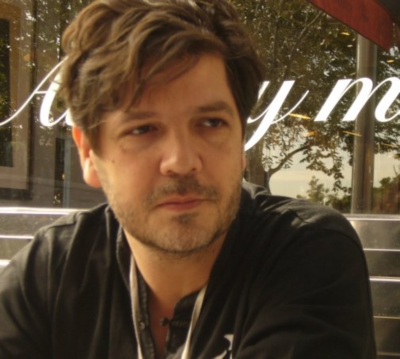 Javier Moscoso is a Research Professor in the History and Philosophy of Science at the CSIC (Spanish National Research Council). He was a postdoc at the Centre Alexandre Koyré in Paris, and an invited research scholar at the Wellcome Institute of History of Medicine in London for four years, at Harvard University for two years, as well as the the Max Planck Institute in Berlin. He is currently Head of the Humanities and Social Sciences Institutes at CSIC.
Javier Moscoso is a Research Professor in the History and Philosophy of Science at the CSIC (Spanish National Research Council). He was a postdoc at the Centre Alexandre Koyré in Paris, and an invited research scholar at the Wellcome Institute of History of Medicine in London for four years, at Harvard University for two years, as well as the the Max Planck Institute in Berlin. He is currently Head of the Humanities and Social Sciences Institutes at CSIC.
His research interests focus on the history of the life sciences, the development of a teratology science, as well as the history of pain. He has written several articles, compilations and monographics, and organized several exhibitions on these topics such as the “Monsters and Imaginary Beings” exhibition at the Spanish National Library in Madrid and the “History of pain” exhibition at the Science Museum in London. Also, he has written a forthcoming (2010) book commissioned by Macmillan-Palgrave titled /Cultural History of Pain/. As a curator, he is currently organizing SKIN, an exhibition launched on June 10, 2010, at the Wellcome Trust in London devoted to the cultural history of human skin.
- Dr. Javier Ordóñez
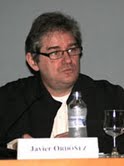 Javier Ordóñez is a Research Professor in History of Science at the Universidad Autónoma de Madrid. He graduated in Physics and Philosophy at the Universidad Complutense de Madrid. He has taught at the Universidad del País Vasco, the Universidad de Deusto, and the Instituto Tecnológico de Monterrey (Mexico). He has been visiting scholar at the City University of New York and the Max Planck Institute in Berlin. He has been awarded with the Ordre des Palmes Académiques on December 1, 1997, by the President of the Republic of France.
Javier Ordóñez is a Research Professor in History of Science at the Universidad Autónoma de Madrid. He graduated in Physics and Philosophy at the Universidad Complutense de Madrid. He has taught at the Universidad del País Vasco, the Universidad de Deusto, and the Instituto Tecnológico de Monterrey (Mexico). He has been visiting scholar at the City University of New York and the Max Planck Institute in Berlin. He has been awarded with the Ordre des Palmes Académiques on December 1, 1997, by the President of the Republic of France.
- Dr. Matthew Stanley
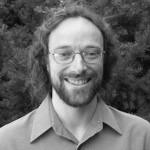 Matthew Stanley teaches and researches the history and philosophy of science. He holds degrees in astronomy, religion, physics, and the history of science, and is interested in the connections between science and the wider culture. He is the author of Practical Mystic: Religion, Science, and A.S. Eddington, which examines how scientists reconcile their religious beliefs and professional lives. Currently, he is writing a book that explores how science changed from its historical theistic foundations to its modern naturalistic ones. Professor Stanley is also developing a project on science in war, and he is part of a nationwide effort to use the humanities to improve science education in the college classroom. He has held fellowships at the Institute for Advanced Study, the British Academy, and the Max Planck Institute.
Matthew Stanley teaches and researches the history and philosophy of science. He holds degrees in astronomy, religion, physics, and the history of science, and is interested in the connections between science and the wider culture. He is the author of Practical Mystic: Religion, Science, and A.S. Eddington, which examines how scientists reconcile their religious beliefs and professional lives. Currently, he is writing a book that explores how science changed from its historical theistic foundations to its modern naturalistic ones. Professor Stanley is also developing a project on science in war, and he is part of a nationwide effort to use the humanities to improve science education in the college classroom. He has held fellowships at the Institute for Advanced Study, the British Academy, and the Max Planck Institute.
- Dr. Jesús Zamora-Bonilla
 Jesús Zamora-Bonilla teaches philosophy and sociology of science, and philosophy of social sciences, at UNED (Madrid), where he also coordinates the science communication unit. His main research activity has concentrated on the problem of the rationality of scientific knowledge, a question he has studied from different points of view: the notion of ‘approximation to the truth’ or ‘verisimilitude’ of scientific theories, the application of game theory to the study of the epistemic norms of science, and the extension of scientific rationality to the general audiences and to public deliberation.
Jesús Zamora-Bonilla teaches philosophy and sociology of science, and philosophy of social sciences, at UNED (Madrid), where he also coordinates the science communication unit. His main research activity has concentrated on the problem of the rationality of scientific knowledge, a question he has studied from different points of view: the notion of ‘approximation to the truth’ or ‘verisimilitude’ of scientific theories, the application of game theory to the study of the epistemic norms of science, and the extension of scientific rationality to the general audiences and to public deliberation.







